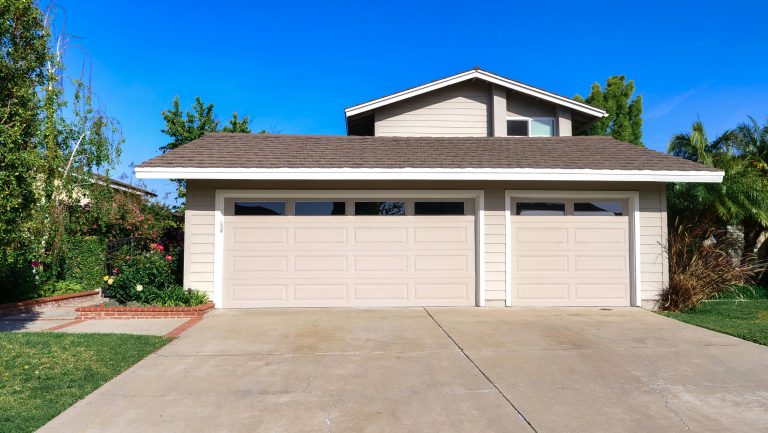

If you’re new to homeownership, here’s a checklist to make sure you’re making the right decisions. If you’re considering buying property, ensure your safety and well-being. A good safety plan includes getting a security system, keeping your keys safe in a public place, and avoiding dangerous activities such as stealers and firefighters.

Keep an Eye on Your Finances
Be sure that you’ve done your homework before buying a property. Don’t mistake borrowing money from the bank to buy a house. Instead, do some research on what home is more suitable for you. Get ready to finance it once you’ve got a feel for the type of property that suits your needs.
It will help if you are keen on your credit report and other financial records. If you’re getting into debt, it’s better if you can pay it back before buying any property or major home improvement project. Be sure that you have enough money if this happens as soon as possible. By monitoring how much money is coming in and going out, you can maintain an accurate account of yourself and avoid interest charges over time.
Be cautious of any loan you may receive. Compare all loan offers to the price of the property. This assures you that you’ll be getting a good deal. Remember, there are many different types of loans, and some are better than others. Just because one might look more appealing to your ears doesn’t mean it’s a good deal for you. Explore all possibilities, but don’t discount the possibility that there’s something better out there for you.
Don’t get stuck in a financial mess over purchasing a property that isn’t quite right for you. Many people buy homes based on impulse because they can’t afford to wait until they save enough money from their monthly income to reach their target debt-to-income ratio before making the purchase.
Always have cash available for emergencies. You cannot tell when an unexpected bill may come up, so it’s best if you’re ready with a contingency plan.

Keep Your Keys Safe in Public Places
If you’ve never owned a home, it’s a good idea to call your local commercial locksmith to have a basic installation done on your new lock. You’ll also want to make sure there are enough closets, cabinets, and drawers to store important items like electronic media and prescription medications.
When buying a home, you may want to consider additional security measures, such as a security system. This ensures that you will be protected from burglars and thieves.
Place valuables in more than one place to increase their safety. This includes hidden areas like under the furniture or behind the baseboards. Get rid of anything you think might be dangerous and replace it with something safer that won’t tempt a thief.
Install deadbolts on all doors and windows in common areas. You might also want to consider moving electrical outlets and other valuables, such as television sets, phones, or video games, into safes located nearby.
Place security bars over tubes or screws, which may provide entry points for thieves. Ensure these bars are secured so that they won’t be an easy way for thieves to access your home.
If you’re renting a home, consider getting an alarm system installed simultaneously as you are signing the lease agreement. If you don’t get one at first, ask your landlord if they will pay for it later, when you’re ready to move out of the lease agreement. More importantly, make sure that up-to-date digital locks and passwords protect all communication between tenants; this will help ensure that no information is stolen from your home.

Keep Paperwork Up-to-Date and Organized
Save all receipts for the property’s maintenance for a minimum of two years. It will help you assess the value of your home at the time of selling and provide information that lenders and appraisers may need to determine its true market value.
Although it’s good to keep an accurate record, don’t overdo it. If all you do is save every receipt, your property likely won’t stand out among similar homes in your neighborhood, and you might miss something useful by way of a receipt that should have been saved. So, instead of saving every piece of paper you get, focus on the documents that will be most useful to future homeowners or potential buyers.
It’s important to know what taxes are being assessed against your property so you’ll know how much money you should be saving each year for buying repairs or replacement items. If taxes go up, check with your municipal government’s tax office to find out how much they’ve increased and save accordingly. This information is often found in brochures or on their website.
Televisions should not be installed in bedrooms as thieves can easily remove these devices and other valuables within minutes. To prevent these thefts, install keypads on televisions with remote controls so that thieves can’t easily remove them.
Make it clear to all family, friends, and neighbors that they cannot access your home. Also, make sure that any visitors who come over should always ring the doorbell and let you know their presence and what time. This way, you can inform your family members about the unwanted visitors by phone or text message instead of risking them entering your home.
Ensure that you lock doors and windows when leaving your home or going to bed. The best thing is to lock even the tiny hole by which you can see inside from the outside so no one can sneak into your bedroom. Otherwise, thieves can get in through air vents or windows left open for fresh air or light.

Do Not Leave Valuables in Plain Sight
This includes on top of desk drawers or tabletops. At least place them below these surfaces to prevent thieves considering these places a good hiding spot. Also, never place important documents such as passports or birth certificates in the same drawer together with household cleaning materials or expired medications. This will provide an easy target for would-be thieves and make it more likely that they’ll steal these documents at once. If you’re determined to use a drawer as a safe-deposit box, consider using one with different compartments for each day of the week. This way, there will be no chance of thieves finding out which day’s information is being kept there.

Check for Reused Properties
If you see signs of a previous owner or other signs, look around your neighborhood to see how many people are selling property. If you purchase a home in an area with high crime rates, ask the owner to show you their crime rate.
Don’t sign anything that’s not legally binding unless you have it in writing, and the seller can present the original documents required by law. It is illegal for a seller to complete your purchase without proper documentation and signing all paperwork. If this happens, you can stop the sale but would have to pay a losing deposit and legal fees.
Before buying any property, call all potential utilities and utility providers who service your preferred location. You need to check with them before purchasing to know what kind of service is available and what monthly charges will be incurred. Ensure that you are not overpaying for utilities or other amenities when checking out the property because energy bills can add up quickly. Also, call local housing codes for regulations about pets, gym, living arrangements, and home improvements that are allowed or not allowed in your preferred neighborhood.
When exploring housing options in homes that appeal to you, make sure there are no old repairs noted on the inspection report from previous owners. These include broken pipes or appliances, wallpaper peeling, mold, musty smell, missing doors or windows, cobwebs or nests inside cupboards, and loose floorboards.
Check all cords before turning them on. Take your time and find a property that you will want to live in for many years to come. You may also need to check out for an urgent care clinic nearby.
Before you walk into a home that has been recently sold, make sure the owner has removed all personal belongings, cleaned the home, and made any necessary repairs, such as hot water heater repair, repainting, or replacing the carpet with new flooring. Ensure to ask all seller questions to fully understand any minor details about the property, including previous repairs noted on the inspection report.
Ask All Questions Before Signing
It is vital to ask all questions before signing anything and confirm it by email or phone. When buying property through an inspection company, check out their background information on each seller so you know who is selling you their home. Also, ask whether they will provide you with a no-obligation report on any improvements they may make before your closing date if you plan to renovate yourself. You can inquire about weed control services before purchase.
A good home inspector can save you money. Make sure that your inspector is licensed, bonded, and insured. Also, ensure that their license shows their names and is registered with your state’s Real Estate Commission. Take note of any particular concerns about specific areas of concern or issues such as HVAC repair, which might prevent them from making an offer. If possible, get them on record. Suppose there are any problems down the road. In that case, it may be easier for them to repair, rather than having issues arise during the closing, resulting in closing delays or other complications.
Be very careful when speaking to inspectors who say they will destroy any property they cannot sell. Most states have laws requiring them to make every attempt to sell the property at or above its market value; otherwise, they would lose their licenses and be prevented from practicing their trade. If the property is old and you have concerns about structural integrity or health reasons, take photos of any structural issues and send them along with your offer to the seller.
Many inspectors will forget about it later, even if an inspection reveals a flaw was noted on their inspection report. Check the website or social media for specific reuse houses for a home office organization system selling low prices. Investigate the neighborhood’s crime rates, safety, and traffic information. You also need to find out about the nearby restaurants and wedding venues beforehand.
Check Out the Moving Costs
You need to check out the moving costs of purchasing a home before calling a moving company for estimates. Prepare yourself for all of the cost factors that come into play after being asked about them by someone unqualified to assist with your questions about moving costs, even if they’re trying to be helpful. Moving is always stressful, especially if it involves relocating from one state to another, so don’t make a move before considering every expense involved beforehand.
When purchasing foreclosure properties, a major point of consideration is figuring out what makeup of your specialty projects will be after they’ve gone through an auction process.
Make Sure You Research Foreclosures
It would help if you researched foreclosures thoroughly before making an offer on one. This will make sure you know what you’re getting into before you purchase any properties, whether that’s from a realtor or an auction.
Determine the time frame of the foreclosure process. This is very important when preparing to purchase a foreclosure because houses do tend to start selling right after they are put up for sale at auction, and then they close within days, so you should do your research beforehand. If a house does not sell in the first couple of weeks after it has been put up for auction, be careful about buying it because this means it could be damaged.
However, if it sells quickly after being put up for auction, then this indicates that people want the property and believe it will sell quickly. There is no way to tell how fast a house will sell except by buying one. Most people don’t realize that some foreclosures will also go through a short period of multiple bids, sometimes as many as five, before being sold again. It can take anywhere from one day to two weeks for these houses to sell. The top bidder usually gets them, but other people may get the last-second bid on the house since everyone becomes nervous if they fail to get their bids in on time.
In conclusion, make sure you know all the steps in the buying process and know how to avoid any pitfalls. If you want to find the perfect home buy or are currently in the process of buying, ensure that you do thorough research before signing your contract. This will help you avoid problems after purchase.







